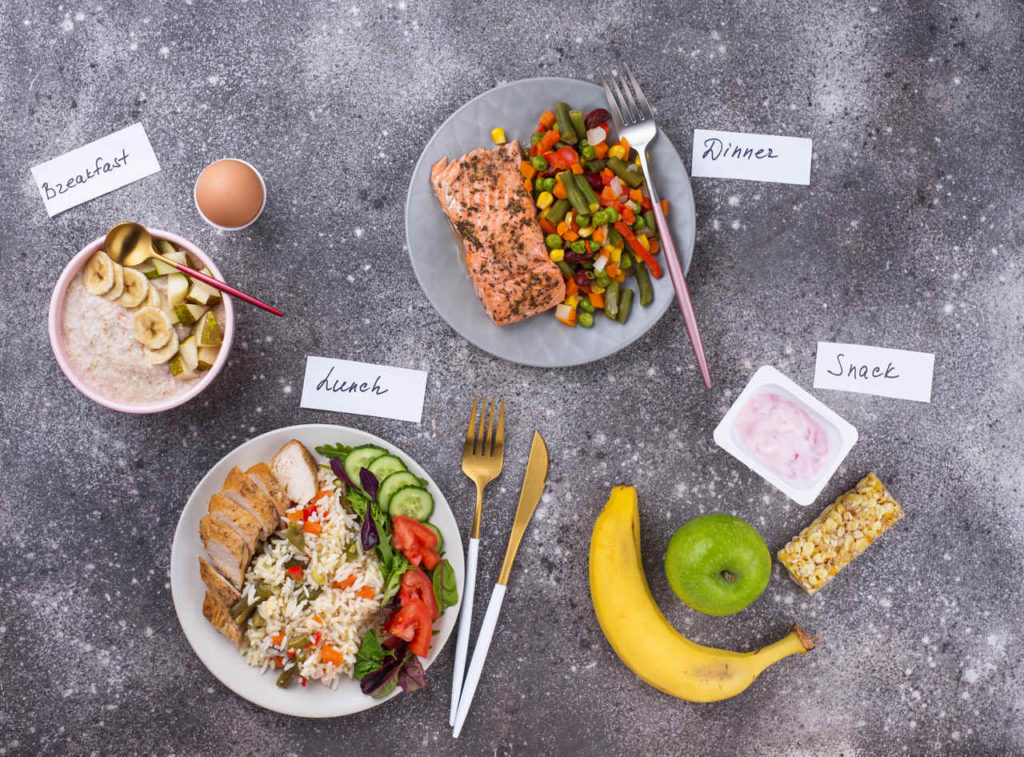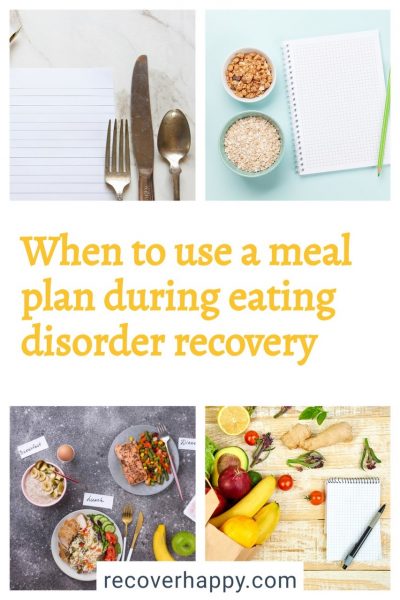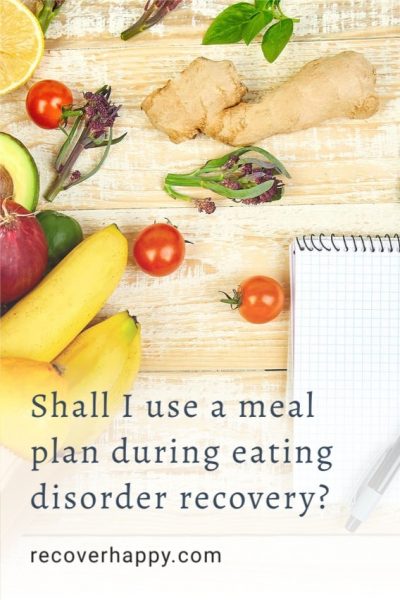Shall I use a meal plan during eating disorder recovery?
By Tanja, Psychologist for Eating Disorders & Body Image

A meal plan during eating disorder recovery is very popular and is often recommended for a full recovery. Eating regular balanced meals can give you specific guidance and structure, which can help you change your eating behaviours and can take you one step closer to becoming an intuitive eater.

Hi there!
I’m Tanja. I’m a qualified psychologist specialising in eating disorders, negative body image and body hate. I’m also a survivor of anorexia.
My mission is to help you to end your lifelong struggles with food and your body and inspire you to uncover and embrace you true worth. Read more…
But does a meal plan during eating disorder recovery work for everyone? No, it does not.
In my time as an eating disorder recovery psychologist, I have come across various clients who found it difficult to follow a meal plan during eating disorder recovery. The reasons for this varied; some found it too restrictive, while for others a meal plan during eating disorder recovery felt too much like another diet.
On the contrary, I have met several clients who were almost desperate to have a meal plan during eating disorder recovery in order to feel “safe” and stay in control.
To help you find out if a meal plan is a good idea for you eating disorder recovery, I’m going to show you the benefits of following a meal plan during eating disorder recovery, when you should consider following one and what downsides this might have.
Join the Body Acceptance & Food Freedom Collective
Receive a weekly dose of inspirations to help you make peace with your body and food.
Don’t worry, we hate spam too. You can unsubscribe any time.
Categories
Anorexia
Binge Eating Disorder
Bulimia
Intuitive Eating
Mindfulness
Orthorexia
Strategies for Recovery
Benefits of following a meal plan during eating disorder recovery
Following a meal plan during eating disorder recovery can be a very useful first step to helping you eat more again after anorexia, as it helps you to decide in advance what, when and how much you will eat each day. At first, you might feel full very quickly because of slow digestion and because your stomach is not used to having a “normal” amount of food in it. A meal plan can help you to feel hunger and fullness again by rewiring your brain so that you can learn to think about and experience food differently.
A meal plan during eating disorder recovery typically includes three planned meals and two or three planned snacks each day, with no more than fours hours between each eating time.
As well as anorexia sufferers, this can also help people with binge eating disorder and bulimia. This structure helps you to normalise your eating, which will enable you to feel fullness after eating a “normal” amount of food and not just after you have binged. A meal plan during eating disorder recovery also keeps the blood sugar stable and prevents hunger from getting too strong, which ultimately helps you regain control of your binge eating and purging behaviours.

Signs that you should follow a meal plan during eating disorder recovery
Following a meal plan during eating disorder recovery is a good choice if you:
- are struggling to tell what an appropriate serving size is.
- don’t know how much food you need to eat throughout the day.
- don’t know what hunger or fullness feels like anymore.
- need to gain weight, but you are afraid to eat too much food or lose control.
- are too afraid to try new foods or your fear foods (link).
- struggle to make decisions about what to eat during the day.
- like to follow structure and guidance.
- want to change but are stuck with your current eating behaviours.
- have tried to recover without a meal plan, without success.
If you can relate to one or more of these signs, it might be helpful for your eating disorder recovery to follow a meal plan for at least a short time.

Potential downsides of a meal plan during eating disorder recovery
For some, especially those who have been restrictive dieters, have eaten in a very structured way, have subjected themselves to strict rules and have been obsessed with eating times, following a meal plan during eating disorder recovery may not be the best choice.
One of the risks of a meal plan during eating disorder recovery is that you might become too obsessed with your meal plan and use it as a way to restrict yourself again, instead of as a way to expand your food choices and the amount you eat.
Another possible downside is that due to the structured nature of a meal plan, the eating times might not fit in with your social life or work/school schedule.
Furthermore, after some time you might feel too restricted and you might even experience negative feelings whenever you eat more than planned. You might even find that the meal plan has turned into another diet, precisely what you have been trying to avoid .
Several of my clients also mentioned that they felt very stressed about meeting the planned eating times and that the slightest delay in eating felt like committing a crime.
Even if you feel resistance to the idea of a meal plan during eating disorder recovery, I encourage you to try this approach for just one week, to see how it feels. If you still feel that a meal plan during eating disorder recovery is not the right approach after this time, you might want to try more flexible approaches such as serving-based eating, calorie-minimum eating or mindful eating.
Just keep in mind: no matter what approach you choose, the goal is to meet your body’s nutritional needs so that it brings you satisfaction, joy and well-being.
You don’t need to struggle alone on your recovery journey.
Simply get in touch to discuss how I can help you.
It is entirely possible to overcome an eating disorder or body hate –
I have done it, others have done it and so can you!
Join the Body Acceptance & Food Freedom Collective
Receive a weekly dose of inspirations to help you make peace with your body and food.
Don’t worry, we hate spam too. You can unsubscribe any time.
You Might Also Enjoy...

Hi there!
I’m Tanja. I’m a qualified psychologist specialising in eating disorders, negative body image and body hate. I’m also a survivor of anorexia.
My mission is to help you to end your lifelong struggles with food and your body and inspire you to uncover and embrace you true worth. Read more…



